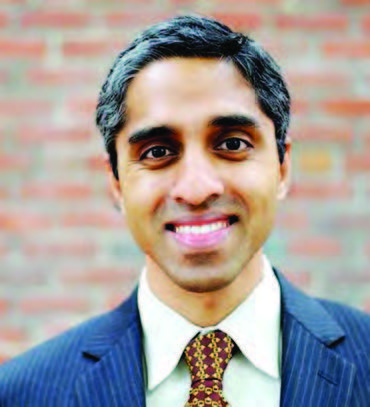
By providing real-time histological data to endoscopists, Rice’s microendoscope can help rule out malignancy in cases that would otherwise require a biopsy.
“While traditional endoscopy can rule out malignancy and eliminate the need for biopsies for some patients, in a significant number of cases the difference between malignant and benign lesions only becomes apparent through a histological analysis,” said study co-author Indian American Dr. Sharmila Anandasabapathy, professor of medicine and gastroenterology at Baylor College of Medicine and director of Baylor Global Initiatives and the Baylor Global Innovation Center.
In a clinical study of patients in the United States and China, researchers found that a low-cost, portable, battery-powered microendoscope developed by Rice University bioengineers could eventually eliminate the need for costly biopsies for many patients undergoing standard endoscopic screening for esophageal cancer.

The research is available online in the journal Gastroenterology and was co-authored by researchers from nearly a dozen institutions that include Rice, Baylor College of Medicine, the Chinese Academy of Medical Sciences and the National Cancer Institute.
The clinical study, which involved 147 U.S. and Chinese patients undergoing examination for potentially malignant squamous cell tumors, explored whether Rice’s low-cost, high-resolution fiber-optic imaging system could reduce the need for unnecessary biopsies when used in combination with a conventional endoscope — the worldwide standard of care for esophageal cancer diagnoses.
Clinical studies of Rice’s microendoscope are either planned or underway for a dozen types of cancer including cervical, bladder, oral and colon cancers.
“More than half of cancer deaths today occur in the developing world, often in low-resource areas,” Anandasabapathy said. “The World Health Organization and other important international bodies have called for increased global focus on noncommunicable diseases like cancer, and Rice’s microendoscope is a great example of what the right kind of technology can do to change health care in low-resource countries.”
Additional study co-authors include Timothy Quang, Dongsuk Shin and Richard Schwarz, all of Rice; James Godbold, Marion-Anna Protano, Michelle Lee, Josephine Mitcham, Erin Moshier, Alexandros Polydorides and Courtney Hudson, all of Mount Sinai Medical Center; Junsheng Cui, Hong Xu, Fan Zhang and Weiran Xum, all of the First Hospital of Jilin University; Guiqi Wang and Liyan Xue of the Cancer Institute and Hospital, Chinese Academy of Medical Sciences; Sanford Dawsey of the National Cancer Institute; Mark Pierce of Rutgers University; Manoop Bhutani of the University of Texas MD Anderson Cancer Center; Neil Parikh of Yale University; and Chin Hur of Massachusetts General Hospital.
The research was supported by the National Cancer Institute.
Dr. Sharmila Anandasabapathy, M.D. is a Professor of Medicine in Gastroenterology and Director of Baylor Global Initiatives and the Baylor Global Innovation Center at Baylor College of Medicine, Houston, Texas. In her current role, she oversees Baylor’s global programs and affiliations. The Baylor Global Innovation Center seeks to develop novel, environmentally appropriate technologies and approaches to addressing global disease burden. This includes the development and validation of innovative mobile-applications for clinical care, point-of care diagnostic technologies, and portable, low-cost devices for the diagnosis and management of chronic, non-communicable diseases worldwide.




Be the first to comment